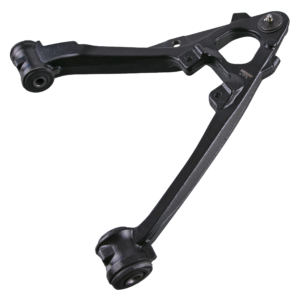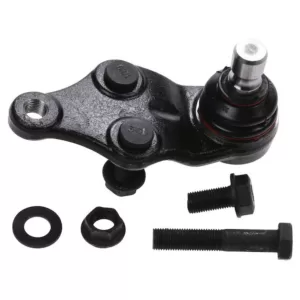Stabilizer Link
The stabilizer link is a vital part of a vehicle’s chassis, connecting the suspension system to the sway bar. It reduces body roll during turns, improving stability and handling. By maintaining tire contact with the road, distributing weight evenly, and enhancing traction, the stabilizer link contributes to better driving control. Regular inspection and replacement ensure optimal suspension performance and safety
Additional information
| Product Category | Finished-Products |
|---|---|
| Product Name | Stabilizer Link |
| Position | Suspension Parts |
| Color | Black, Cr+3 |
Product Details
In an automobile chassis, a stabilizer link, also known as a sway bar link or anti-roll bar link, is a component that connects the suspension system to the sway bar or stabilizer bar. The primary purpose of the stabilizer link is to control body roll and improve stability during cornering and handling.
The stabilizer bar is a steel bar that spans the width of the vehicle’s chassis and is typically mounted between the front or rear suspensions. It is designed to resist the twisting or rolling motion of the vehicle during turns, transferring the force from one side of the suspension to the other. This helps to minimize body lean and maintain better tire contact with the road surface, improving traction and handling.
The stabilizer link connects the ends of the stabilizer bar to the suspension components, typically the control arms or struts. It provides a pivot point for the bar to react against the up-and-down movement of the suspension. When the vehicle encounters a corner or uneven road surface, the stabilizer link transfers the vertical forces from the suspension to the stabilizer bar, allowing it to resist the twisting motion and keep the vehicle more level.
By reducing body roll, the stabilizer link contributes to improved stability, better handling, and enhanced control of the vehicle during maneuvers. It helps to distribute the weight evenly across all the tires, reducing the load on individual wheels and maintaining better traction and grip.
Stabilizer links are subjected to constant stress and are therefore built to be sturdy and durable. However, over time, they may wear out or develop play in the joints, leading to noise, vibrations, or compromised handling. In such cases, it is advisable to have the stabilizer links inspected and replaced if necessary by a qualified mechanic to ensure the optimal functioning of the suspension system and overall vehicle performance.





